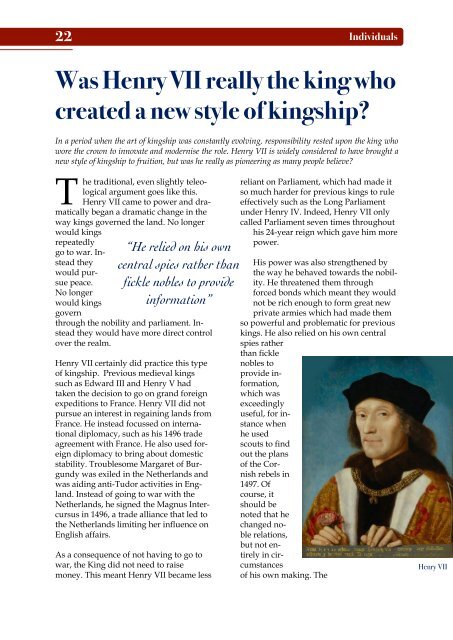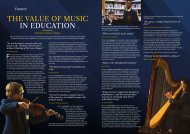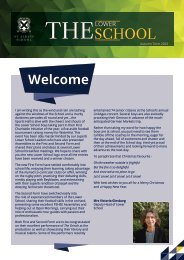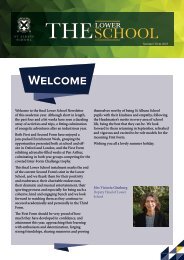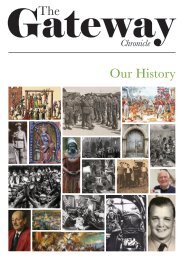Create successful ePaper yourself
Turn your PDF publications into a flip-book with our unique Google optimized e-Paper software.
22 Individuals<br />
Was Henry VII really the king who<br />
created a new style of kingship?<br />
In a period when the art of kingship was constantly evolving, responsibility rested upon the king who<br />
wore the crown to innovate and modernise the role. Henry VII is widely considered to have brought a<br />
new style of kingship to fruition, but was he really as pioneering as many people believe?<br />
T<br />
he traditional, even slightly teleological<br />
argument goes like this.<br />
Henry VII came to power and dramatically<br />
began a dramatic change in the<br />
way kings governed the land. No longer<br />
would kings<br />
“He relied on his own<br />
central spies rather than<br />
fickle nobles to provide<br />
information”<br />
repeatedly<br />
go to war. Instead<br />
they<br />
would pursue<br />
peace.<br />
No longer<br />
would kings<br />
govern<br />
through the nobility and parliament. Instead<br />
they would have more direct control<br />
over the realm.<br />
Henry VII certainly did practice this type<br />
of kingship. Previous medieval kings<br />
such as Edward III and Henry V had<br />
taken the decision to go on grand foreign<br />
expeditions to France. Henry VII did not<br />
pursue an interest in regaining lands from<br />
France. He instead focussed on international<br />
diplomacy, such as his 1496 trade<br />
agreement with France. He also used foreign<br />
diplomacy to bring about domestic<br />
stability. Troublesome Margaret of Burgundy<br />
was exiled in the Netherlands and<br />
was aiding anti-Tudor activities in England.<br />
Instead of going to war with the<br />
Netherlands, he signed the Magnus Intercursus<br />
in 1496, a trade alliance that led to<br />
the Netherlands limiting her influence on<br />
English affairs.<br />
As a consequence of not having to go to<br />
war, the King did not need to raise<br />
money. This meant Henry VII became less<br />
reliant on Parliament, which had made it<br />
so much harder for previous kings to rule<br />
effectively such as the Long Parliament<br />
under Henry IV. Indeed, Henry VII only<br />
called Parliament seven times throughout<br />
his 24-year reign which gave him more<br />
power.<br />
His power was also strengthened by<br />
the way he behaved towards the nobility.<br />
He threatened them through<br />
forced bonds which meant they would<br />
not be rich enough to form great new<br />
private armies which had made them<br />
so powerful and problematic for previous<br />
kings. He also relied on his own central<br />
spies rather<br />
than fickle<br />
nobles to<br />
provide information,<br />
which was<br />
exceedingly<br />
useful, for instance<br />
when<br />
he used<br />
scouts to find<br />
out the plans<br />
of the Cornish<br />
rebels in<br />
1497. Of<br />
course, it<br />
should be<br />
noted that he<br />
changed noble<br />
relations,<br />
but not entirely<br />
in circumstances<br />
of his own making. <strong>The</strong><br />
Henry VII


